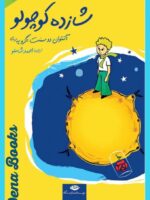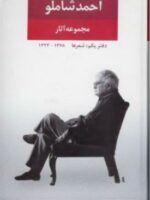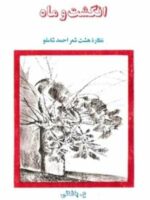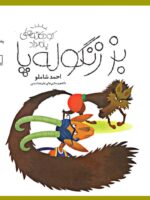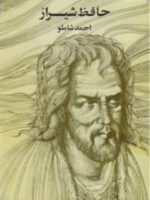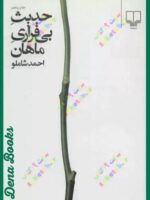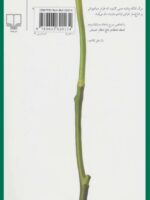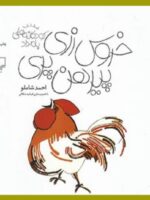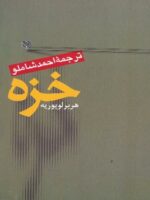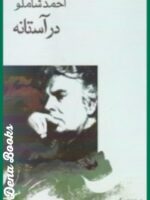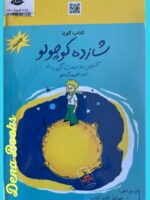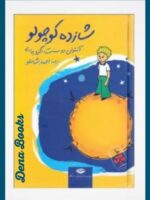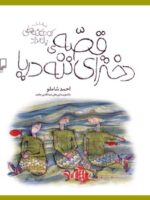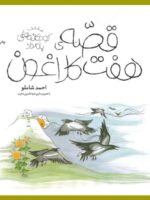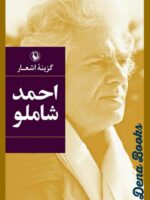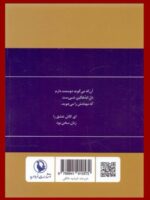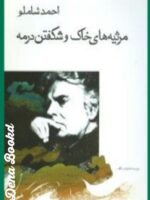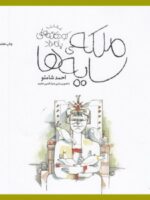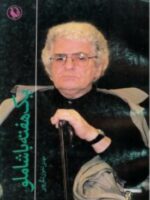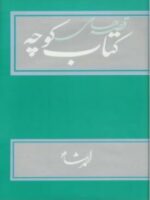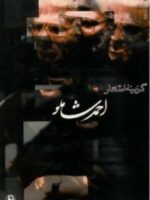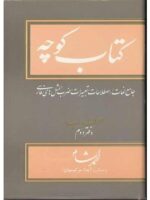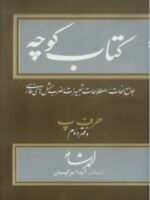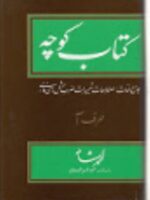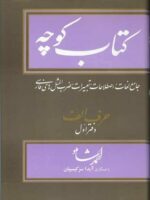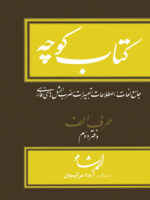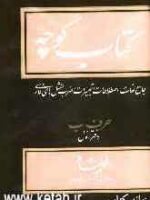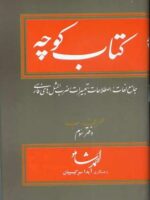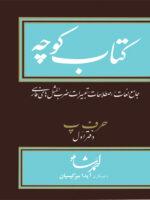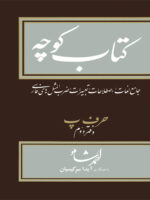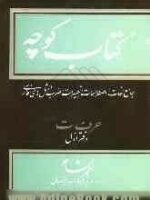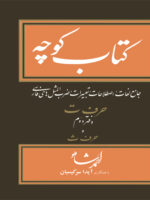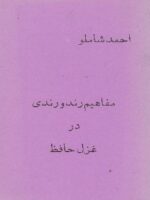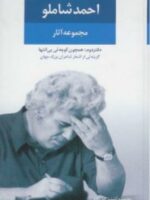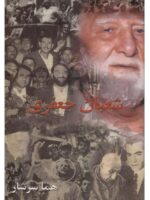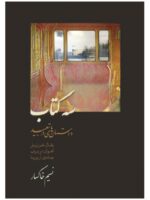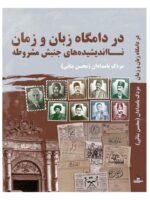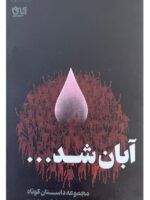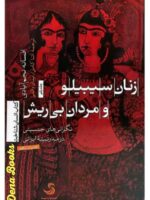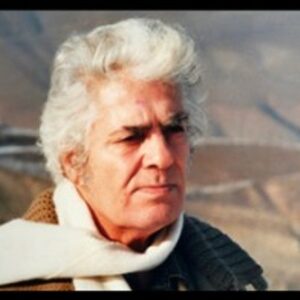
Ahmad Shamlou was born on December 12, 1925, in Tehran to a family that was to move around Iran because of the duties of his father, who was an army officer. Therefore he received his primary education from the schools around Iran. In 1938 Shamlou left high school to enrol in the technical College of Tehran.
In 1942 His father took him to the north of Iran which was occupied by the Soviet Army. Shamlou was arrested by the Red Army for his political ideas and is sent to Rasht. He was released from jail in 1945 and left with his family for Azarbaijan. The separatists arrest him and his father for a short time. They were sent back to Tehran. Shamlou decided to leave school for good.
He married for the first time in 1947, and in this year he released his first collection of poems: The Forgotten Songs.
In 1948 he started to write in a literary monthly called “Sokhan”. Two years later his first short story was published: “The Woman Behind the Brass Door”.
Second collection of poems: Manifesto, was published in 1951. He showed clear inclinations toward ” Socialist ideology.
In 1952, he got a job in the Hungarian embassy as their Cultural Advisor. An in this year he third collection of poems, Metals and Sense, was banned and destroyed by the police. His translations of Gold in Dirt, by Sigmud Motritz and the voluminous novel. The Sons of a Man Whose Heart Was Made of Stone, by Morio Kai, together with all data gathered for his work on the colloquial culture of urban Iranian life (to be known as the Book of Streets) were also confiscated and destroyed. He escaped and went into hiding. Two years later he was arrested and kept in jail for 14 months.
He was freed in 1955. His four new collections of poems were taken and lost by a publisher. In 1956 He became the editor-in-chief of “Bamshad” literary magazine. He was separated from his wife after having two sons and one daughter.
He released his masterpiece in 1957, The Fresh Air, a collection of poems that would influence Persian poetry profoundly. He also published a few studies on classic Iranian poetry. And he married for a second time.
His translation of Barefoot, a novel by Zaharia Stancu, was released, establishing Shamlou’s authority as a translator. And in 1959 He began publishing short stories for children, as well as directing documentary films and working for film studios.
A new collection of his poems, the Garden of Mirrors, was released in 1960. And in 1961 he suffers a bitter separation from his second wife. He became editor-in-chief of “Ketab-e-Hafte”, a magazine which changed the tradition and language of literary journalism in Iran.
He met Ayda in 1962, beginning a loving relationship that had lasted until his death. His translations of Andre Gide and Robert Merl were published.
Shamlou and Ayda were married in 1964. Two collection of his poetry are published: ‘Ayda in Mirror’ and ‘Moment and Eternity’.
In 1965 new collections of poems were released: Ayda, Trees, Memories and the Dagger. He had a new translation published. He also began his third attempt to compile The Book of Streets. Another new collection of poem is published in 1966: Qoqnus in the Rain. The Ministry of Information banned his literary magazine.
He became editor-in-chief of “Khushe” in 1967. His new translation of Erskine Caldwell was published. He participated in the formation of the Union of Iranian Writers and gave several poetry readings at Iranian universities.
In 1968 he began his study of Hafiz, the classical grand poet of the Persian Language. He translated Garcial Lorca’s poems and the Song of Solomon from the Old Testament, and organized a week of poetry reading for established and new Iranian poets, which was very well received. The poems debuted at this event appear in a voluminous book edited by Shamlou.
The police closed down his weekly magazine in 1969. Of Air and Mirrors, a selection of older poetry, was published, together with his collection of new poems, Odes for the Earth.
In 1970 New collection: Blossoming in Mist. He directed a few documentary films for television and published several short stories for children. And he redid some of his earlier translations. His mother died in 1971.
He taught Persian literature at Tehran University in 1972. Several audiocassettes were released of Shamlou reciting other classical and modern poet’s work. He obtained membership in the Iranian Academy of Language. He published several new translations and wrote a few film scripts. He travelled to Paris for medical treatment. In 1973, two new collections, Abraham in “Fire and Doors” and “The Great China Wall”, were released, along with several new translations. An two years later in 1975 he published his work and study of Hafez.
He travelled to the United States in 1976 and gave poetry reading in many cities. He participated in the San Francisco Poetry Festival before returning to Iran.
In 1977 New poem: “Dagger on the Plate”. He left Iran in protest of the Shah’s regime and stayed in the United States for a year, giving lectures in American Universities. But he left the United States for Britain in 1978 to act as the editor-in-chief for a new publication called “Iranshahr”; resigned after 12 issues and returned to Iran just after the advent of the Revolution; rejoined the Union of Iranian Writer, began publishing a new periodical, “Ketab-e-Jom’e” to great success. This year was a very active year in his life, as he published many poems and translations, as well as giving numerous lectures and readings. He was also elected to membership of the Writer’s Union’s leadership. He was at this point considered the finest Iranian poet.
1979 was another year of intensive activity on different fronts. The first and second volumes of the Book of Streets went to print. He was re-elected as member of Writer’s Union leadership. In 1980 with the harsh political situation in Iran, he would lead a rather secluded life that would last for the next eight years, working with Ayda on the Book of Streets, as well as many other literary endeavours, including a translation of ‘And Quiet Flows the Don’ by Mikhail Sholokhov.
He was invited by “Interlit” in 1988, the World Literary Congress. He toured Europe giving many lectures and readings. His complete collection of poems was printed in Germany. He returned to Iran again.
In 1990 He toured the United States. Human Rights and The Fund for Free Expression presented him with their annual award. Several works were published on his poetry and his overall literary contribution. Again in 1991 he toured Europe and returned to Iran for another four years of intensive work. His work appeared in Armenian and English: ‘Sacred Words’ by the year 1992. And once again he went on touring but this time to Sweden giving numerous lectures and readings in 1994. And in 1995 there was a special gathering in Toronto, Canada of Iranian writers and critics to discuss Shamlou’s contribution to Persian poetry. His works were published in Spanish: Aurora!
His physical condition deteriorated in 1996. He underwent several operations. And in 1997 his right foot was amputated due to severe diabetic problems.
He died on Sunday July 23, 2000, at 9 p.m.
Shamlou was prominent both as a great historical literary figure and as a major poet. He was a journalist, a playwright, a translator and a broadcaster. His historical contribution to the reformation of Persian poetry has been the subject of many books. His poetry has been translated into several languages, however it remains a relatively undiscovered treasure in the West. He was a humanist and a socially minded intellectual who has skilfully woven personal love and affection together with his social attitudes. He lived always with hope and passion for justice.
(From: Iran Chamber Society)

